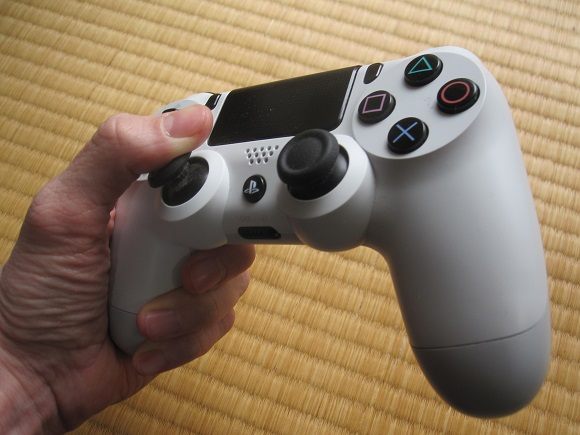
Proposal also bans playing games after certain times at night depending on gamer’s age.
On January 10, members of a special committee of the Kagawa Prefectural Assembly held a meeting. The legislators gathered to formally announce their draft of the newest piece of codified law they believe their citizens need: a government-set limit on the amount of time kids are legally allowed to spend playing video games.
The proposed ordinance would cap the amount of time children high-school age or younger can play games each day, and thus be applicable to all residents of the prefecture 17 or younger, as well as those who won’t graduate until after they turn 18. Under the law, children would be allowed to play video games for only one hour a day on weekdays, and no more than 90 minutes on weekends and holidays. The committee cites a need for government countermeasures against video game and Internet addiction as the driving force behind its proposal.
Japan has an unusual love/hate relationship with video games. On one hand, they’re a high-profile, much-loved part of the entertainment landscape, with Tokyo boasting Final Fantasy restaurants and a brand-new Nintendo specialty shop in showcase neighborhood Shibuya. Globally successful video game companies are so respected that when Prime Minister Shinzo Abe appeared at the closing ceremony of the 2016 Olympics, as part of the passing of the baton to the 2020 Tokyo Games, he did so while cosplaying as Super Mario.
▼ Nintendo Tokyo, the company’s specialty shop in Shibuya
But on the other hand, video gaming has, for decades, been one of the primary things Japanese parents fret are threatening to ruin their children’s futures. One of the most common concerns PTA groups voice is that kids with too much free time will waste it in arcades, and they’re not worried about kids getting into fights, being abducted, or sucking down second-hand smoke while they’re there, but instead have a nebulous but certain impression that spending time jiggling a joystick and slapping buttons will turn young minds to mush.
In addition to limiting how much time children can spend playing video games each day, the proposed ordinance also sets a limit on when kids are allowed to play video games. High school kids have to put down their controllers by 10 p.m., while younger kids have to stop playing by 9.
▼ Sorry, Magikarp. I’d love to play with you, but The Man says no.
The proposal makes no mention of what kids are supposed to do instead of playing games, but zoning out on the couch with a fluffy rom-com movie, eating a bag of potato chips while watching professional sports on TV, or leafing through celebrity gossip magazines, are all options unrestricted by the ordinance, and thus apparently considered a more constructive use of children’s free time.
If ratified, the proposal would be the first such ban in Japan. While there are currently no penalties attached to kids going over the daily limits, the committee says it is now gathering public opinion and may adjust the proposal before it is introduced at the assembly’s regular plenary session next month.
Even without any government mandated punishment, though, the proposal would finally make it illegal for kids to be playing video games when they should be doing something else, behavior that right now can only be corrected by parents who can intone the arcane command “Hey, Taro, if you haven’t finished your homework, stop playing games and go do it now,” a Herculean task far beyond the capabilities of anyone but trained child psychologists. Plus, a government-imposed limit on how much time kids can spend playing games will help prepare them for adult life, since as we all know, there’s no need to even start developing any sort of time-management skills or self-discipline until you’re at least in college, right?
Source: NHK News Web via Otakomu
Images ©SoraNews24
● Want to hear about SoraNews24’s latest articles as soon as they’re published? Follow us on Facebook and Twitter!
Follow Casey on Twitter, where “likes video games” and “is very sarcastic” aren’t listed in his profile, but probably should be.



 Lawyers say Japanese video game ban for kids violates constitution, call for abolition
Lawyers say Japanese video game ban for kids violates constitution, call for abolition Does Tokyo need a legal limit on kids’ video game playing time? Governor gives opinion
Does Tokyo need a legal limit on kids’ video game playing time? Governor gives opinion Research from Tohoku University claims video games impair brain development in children
Research from Tohoku University claims video games impair brain development in children Japanese politicians want to make walking while looking at your smartphone illegal
Japanese politicians want to make walking while looking at your smartphone illegal Tokyo Olympics might allow you to take one, and only one, drink with you into sweltering stadiums
Tokyo Olympics might allow you to take one, and only one, drink with you into sweltering stadiums Foreigner’s request for help in Tokyo makes us sad for the state of society
Foreigner’s request for help in Tokyo makes us sad for the state of society Japanese city loses residents’ personal data, which was on paper being transported on a windy day
Japanese city loses residents’ personal data, which was on paper being transported on a windy day Historical figures get manga makeovers from artists of Spy x Family, My Hero Academia and more
Historical figures get manga makeovers from artists of Spy x Family, My Hero Academia and more Red light district sushi restaurant in Tokyo shows us just how wrong we were about it
Red light district sushi restaurant in Tokyo shows us just how wrong we were about it Harajuku Station’s beautiful old wooden building is set to return, with a new complex around it
Harajuku Station’s beautiful old wooden building is set to return, with a new complex around it Suntory x Super Mario collaboration creates a clever way to transform into Mario【Videos】
Suntory x Super Mario collaboration creates a clever way to transform into Mario【Videos】 Ghibli Park now selling “Grilled Frogs” from food cart in Valley of Witches
Ghibli Park now selling “Grilled Frogs” from food cart in Valley of Witches Studio Ghibli releases new action figures featuring Nausicaä of the Valley of the Wind characters
Studio Ghibli releases new action figures featuring Nausicaä of the Valley of the Wind characters Japan’s cooling body wipe sheets want to help you beat the heat, but which work and which don’t?
Japan’s cooling body wipe sheets want to help you beat the heat, but which work and which don’t? Toyota built a life-sized Miraidon Pokémon and are letting people test drive it this weekend
Toyota built a life-sized Miraidon Pokémon and are letting people test drive it this weekend McDonald’s new Happy Meals offer up cute and practical Sanrio lifestyle goods
McDonald’s new Happy Meals offer up cute and practical Sanrio lifestyle goods Japanese ramen restaurants under pressure from new yen banknotes
Japanese ramen restaurants under pressure from new yen banknotes French Fries Bread in Tokyo’s Shibuya becomes a hit on social media
French Fries Bread in Tokyo’s Shibuya becomes a hit on social media New private rooms on Tokaido Shinkansen change the way we travel from Tokyo to Kyoto
New private rooms on Tokaido Shinkansen change the way we travel from Tokyo to Kyoto Tokyo Tsukiji fish market site to be redeveloped with 50,000-seat stadium, hotel, shopping center
Tokyo Tsukiji fish market site to be redeveloped with 50,000-seat stadium, hotel, shopping center All-you-can-drink Starbucks and amazing views part of Tokyo’s new 170 meter-high sky lounge
All-you-can-drink Starbucks and amazing views part of Tokyo’s new 170 meter-high sky lounge Beautiful Ghibli sealing wax kits let you create accessories and elegant letter decorations【Pics】
Beautiful Ghibli sealing wax kits let you create accessories and elegant letter decorations【Pics】 Studio Ghibli releases Kiki’s Delivery Service chocolate cake pouches in Japan
Studio Ghibli releases Kiki’s Delivery Service chocolate cake pouches in Japan New definition of “Japanese whiskey” goes into effect to prevent fakes from fooling overseas buyers
New definition of “Japanese whiskey” goes into effect to prevent fakes from fooling overseas buyers Our Japanese reporter visits Costco in the U.S., finds super American and very Japanese things
Our Japanese reporter visits Costco in the U.S., finds super American and very Japanese things Studio Ghibli unveils Mother’s Day gift set that captures the love in My Neighbour Totoro
Studio Ghibli unveils Mother’s Day gift set that captures the love in My Neighbour Totoro More foreign tourists than ever before in history visited Japan last month
More foreign tourists than ever before in history visited Japan last month New Pokémon cakes let you eat your way through Pikachu and all the Eevee evolutions
New Pokémon cakes let you eat your way through Pikachu and all the Eevee evolutions Sales of Japan’s most convenient train ticket/shopping payment cards suspended indefinitely
Sales of Japan’s most convenient train ticket/shopping payment cards suspended indefinitely Sold-out Studio Ghibli desktop humidifiers are back so Totoro can help you through the dry season
Sold-out Studio Ghibli desktop humidifiers are back so Totoro can help you through the dry season Japanese government to make first change to romanization spelling rules since the 1950s
Japanese government to make first change to romanization spelling rules since the 1950s Ghibli founders Toshio Suzuki and Hayao Miyazaki contribute to Japanese whisky Totoro label design
Ghibli founders Toshio Suzuki and Hayao Miyazaki contribute to Japanese whisky Totoro label design Doraemon found buried at sea as scene from 1993 anime becomes real life【Photos】
Doraemon found buried at sea as scene from 1993 anime becomes real life【Photos】 Tokyo’s most famous Starbucks is closed
Tokyo’s most famous Starbucks is closed One Piece characters’ nationalities revealed, but fans have mixed opinions
One Piece characters’ nationalities revealed, but fans have mixed opinions We asked a Uniqlo employee what four things we should buy and their suggestions didn’t disappoint
We asked a Uniqlo employee what four things we should buy and their suggestions didn’t disappoint Princesses, fruits, and blacksmiths: Study reveals the 30 most unusual family names in Japan
Princesses, fruits, and blacksmiths: Study reveals the 30 most unusual family names in Japan Japanese sixth-grader calls out smartphone-loving parents over anti-video game lectures
Japanese sixth-grader calls out smartphone-loving parents over anti-video game lectures Japanese mom finds diabolically clever way to crack down on son’s excessive video gaming
Japanese mom finds diabolically clever way to crack down on son’s excessive video gaming Mayor of Osaka wants to legally control when kids can and can’t use smartphones in their own home
Mayor of Osaka wants to legally control when kids can and can’t use smartphones in their own home Tokyo proposes new law cracking down on requests for teens to share nude selfies online
Tokyo proposes new law cracking down on requests for teens to share nude selfies online Should Akihabara be walled off from the rest of Tokyo? Twitter user proposes bold rezoning plan
Should Akihabara be walled off from the rest of Tokyo? Twitter user proposes bold rezoning plan Defector: Gaming culture is alive and well in North Korea, popular titles include GTA V and FIFA
Defector: Gaming culture is alive and well in North Korea, popular titles include GTA V and FIFA City council in Tokyo votes on proposal to give foreign residents partial voting rights
City council in Tokyo votes on proposal to give foreign residents partial voting rights Japanese government mulling indoor smoking ban to be introduced as early as next year
Japanese government mulling indoor smoking ban to be introduced as early as next year There’s a Final Fantasy live-action stage musical coming to Tokyo!
There’s a Final Fantasy live-action stage musical coming to Tokyo! Tokyo Olympics organizers offer to pay volunteers 125 yen 【US$1.13】 an hour, critics unimpressed
Tokyo Olympics organizers offer to pay volunteers 125 yen 【US$1.13】 an hour, critics unimpressed The reason why Nintendo’s Super Mario smartphone game won’t have in-app purchases is brilliant
The reason why Nintendo’s Super Mario smartphone game won’t have in-app purchases is brilliant “Do you have a lot of money?” Japanese kid crushes day care worker with innocent cruelty
“Do you have a lot of money?” Japanese kid crushes day care worker with innocent cruelty World’s #1 Smash Bros. player takes on random kid in Japan’s Narita Airport
World’s #1 Smash Bros. player takes on random kid in Japan’s Narita Airport Japanese junior high school student comes up with ingenious way to bypass iPad usage restriction
Japanese junior high school student comes up with ingenious way to bypass iPad usage restriction Flush with New Year’s present cash, Japanese kids can now look forward to…saving it
Flush with New Year’s present cash, Japanese kids can now look forward to…saving it Japanese prefectural governor wants foreign tourists to pay special extra fee
Japanese prefectural governor wants foreign tourists to pay special extra fee
Leave a Reply